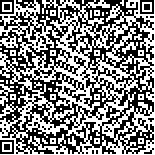| 摘要: |
| 本文研究探索了一种快速简单易行的海洋防污剂室内评价筛选方法。将待测防污剂均匀分散于凝胶溶液中, 然后均匀涂布到一定面积的玻璃板上, 固化得到含防污剂凝胶测试板, 将其置于接种有三种分离自舟山以东海域的优势海洋菌种 (编号为Y-16, W-1 和F-6)的人工加富海水中, 连续培养24h 后显微镜下可发现凝胶板表面上细菌菌落, 将凝胶板表面细菌淋洗、定容, 测定其光密度(optical density, OD)值, 计算平均抑菌率, 得到吡啶硫酮锌(ZPT)为38.87%, 吡啶硫酮铜(CPT)为41.24%, 三甲基氧化锡(TBTO)为65.19%, N,N-二甲基-3,4-二氯苄胺(DCDMA)为30.88%, 敌草隆(Diuron)仅为15.29%, 抑菌性大小为TBTO>CPT>ZPT>DCDMA>Diuron。实验结果表明5 种受试防污剂的抑菌性大小为TBTO>CPT>ZPT>DCDMA>Diuron。采用绘制OD-t 生长曲线法, 分别得到5种防污剂对3 种海洋细菌的最小抑制浓度(minimum inhibitory concentration, MIC), TBTO 对三种菌的MIC 均为0.5×10-3 mg/mL; CPT 对W-1 和F-6 的MIC 为0.97×10-3 mg/mL, 对Y-16 的MIC 为1.93 mg/mL; ZPT 对W-1 和Y-16 的MIC 为1.91×10-3 mg/mL, 对F-6 的MIC 为0.96×10-3 mg/mL;DCDMA 对W-1 和F-6 的MIC 为8.46×10-3 mg/mL, 对Y-16 的MIC 为42.29×10-3 mg/mL。其中, Diuron 对细菌的生长几乎没有抑制作用。其抑菌性与室内短期挂板结果具有一致性, 表明经OD-t 生长曲线得到的MIC 可作为溶剂可溶型防污剂评价的辅助方法。另外, 将本文中室内短期挂板方法应用于不同粒径的氧化亚铜的防污评价, 也取得了与文献一致的结果。 |
| 关键词: 防污剂 海洋细菌 室内挂板 OD-t 生长曲线 |
| DOI:10.11693/hyhz20130300002 |
| 分类号: |
| 基金项目:国际科技合作专项, 2011DFA41900号; 创新团队自主确定的省级面上科研项目, 2010R50025-3号; 校科研启动资金资助 |
|
| A QUICK DETECTION ON MARINE ANTIFOULING AGENT USING MARINE BACTERIA |
|
shenming and Xu Huanzhi
|
|
Zhejiang Ocean University,College of Marine Science and Tecknology , Zhejiang Ocean University
|
| Abstract: |
| We developed a fast and easily simple method for indoor marine antifoulant evaluation. Three marine bacteria isolated from materials of the East China (designated as Y-16 (Gram negative bacteria from seawater), W-1 (Gram negative bacteria attached to submerged mariculture cages), and F-6 (Bacillus subtilis from seawater)) were used as test species. Fiver antifoulants, i.e., pyrithionc zinc (ZPT), copper pyrithione (CPT), tributyltin oxide (TBTO), (3,4-dichlorophenyl)-N,N-dimethylmethanamine (DCDMA), and Diuron were chosen to make antifoulant-agar gel panels. Each antifoulant was dispersed homogenously into a gel solution, and then coated evenly on a glass plate. Once the antifoulants on plate was dried, they were put into an aquarium for 24 hours, and then optimal density (OD) was measured. The relative bacteriostatic rate of antifoulant was: ZPT: 38.87%, CPT: 41.24%, TBTO: 65.19%, DCDMA: 30.88%, and Diuron for only 15.29%. Therefore, the bacteriostatic activity was in an order of TBTO > CPT > ZPT > DCDMA > Diuron. In addition, OD-t curve was drawn from which the minimum inhibitory concentration (MIC) (unit: mg/mL) of each antifoulant was obtained: TBTO: 0.5×10-3, CPT for both W-1 and F-6: 0.97×10-3, for Y-16: 1.93×10-3, ZPT for W-1 and Y-16: 1.91×10-3, for F-6 0.96×10-3; DCDMA for W-1 and F-6: 8.46×10-3 and for Y-16: 42.29. Diuron showed almost no impact on bacteria inhibition. The bacteriostatic effects of these antifouling agents were consistent with the results of indoor hangings, indicating that the OD-t curve can be an auxiliary method for evaluation of solvent soluble antifoling agent. In addition, using micro/nano-Cu2O of different sizes showed the same effect to those previously published on antifoling performance. |
| Key words: atifoulant marine bacteria indoor antifouling panels OD-t growth curve |
